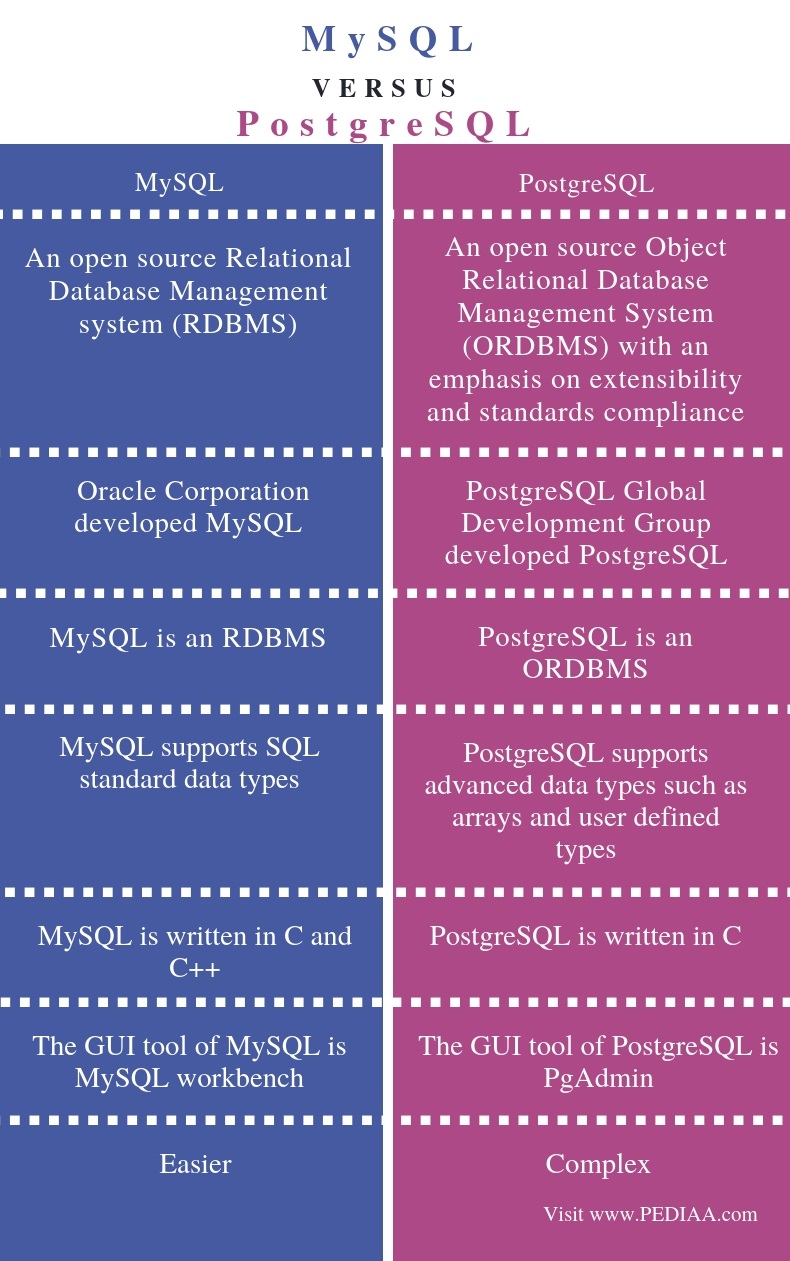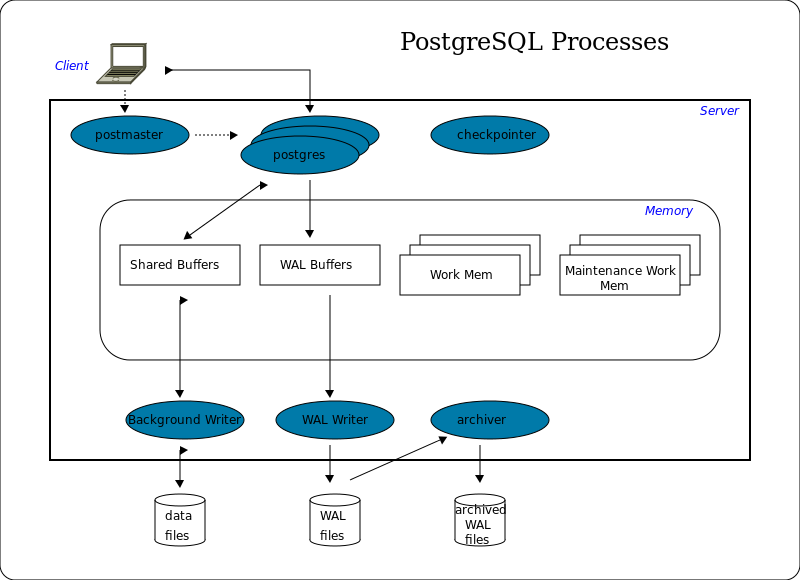


* Built-in support for tablespace and WAL encryption (needs 3rd party stuff for Postgres). * There is an official clustering product option (commercial) Not sure how useful the information is in there though.

* More performance metrics views/tables in the “performance_schema”. * Good JSON handling features, like array range indexers for example: “$” and JSON Path. * Threaded implementation, should give better total performance for very large numbers (hundreds) of concurrent users. * Much more configuration options (548 vs 282), allowing possibly to get better performance or specific behaviour. A tiny and simple tool that I personally appreciate a lot in Postgres, really handy to quickly gauge server performance and OS behaviour under heavy load. A small thing again sure, but a lot of small things will make out a big one. * Some shorthand type casting (“::” in Postgres) seems to be missing. There’s an extension though for Postgres (as usually). Postgres has decided not to implement this feature as it can also cause problems when queries are not updated when data magnitudes changes or new/better indexes are added. * MySQL has index / optimizer hints, which might be a good thing to direct some queries in your favour. It’s a nice shortcut so I use it a lot for Postgres when testing out features / looking at config or “system stats” tables. * No SQL standard “TABLE” syntax support.

I think “mysql” default behaviour is more correct here. * If some SQL script has errors “mysql” immediately stops, whereas “psql” would continue unless a bit cryptic “-v ON_ERROR_STOP=1” flag set. “help select ” shows “URL: ” at the end of syntax description. there seems to be an alternative function on github but first you’d need to create a table so not quite the same. * No “generate_series” function…might seem like a small thing…but with quite a costly (in time sense) impact when trying to generate some test data. * One does not need to specify a DB to connect to – I actually find it positive as it’s easy to forget those database names and when once in, one can call “show databases”. * Can’t set to “extended output” (columns as rows) permanently, only “auto” and “per query”. * Lot less shortcut helpers to list tables, views, functions, etc… I’m myself 99% of time on CLI-s, so it’s essential. Using “mycli” instead makes much more sense. * Very poor tab-completion compared to “psql”. Mysql -h 0.0.0.0 -u root # adding '-p' will fix the errorĮRROR 1045 (28000): Access denied for user (using password: NO)
#POSTGRESQL VS MYSQL 8 PASSWORD#
* When the server requires a password why doesn’t it just ask for it? “mysql” CLI (“psql” equivalent) and general querying experience Under MySQL the default InnoDB engine is meant.ĭocker run -rm -p 3306:3306 -e MYSQL_ROOT_PASSWORD=root mysql:8 To run MySQL, I used the official Docker image, 8.0.14. Also, my bias in this article probably tends to favour Postgres…but I’m pretty sure a MySQL veteran with good knowledge of pros and cons can write up something similar also on Postgres, so my hope is that you can leave this aside and learn a thing or two about either system. So this is just a list of points I made for myself, grouped in no particular order.ĭisclaimer: The last time I used MySQL for some personal project is 10 years ago, so basically I’m starting from zero and it only took one and a half days to get to know it – thus if you see that I’ve gotten something screamingly wrong then please do leave a comment and I’ll change it. Also, I’m leaving aside performance comparisons and I’m looking at just the available features, general querying experience and documentation clarity as this is I guess the most important for beginners. By Kaarel Moppel – Compare MySQL and PostgreSQL – First off – I’m not trying to kindle any flame wars here, just trying to broaden my (your) horizons a bit, gather some ideas (maybe I’m missing out on something cool, it’s the most used Open Source RDBMS after all) and to somewhat compare the two despite being a difficult thing to do correctly / objectively.


 0 kommentar(er)
0 kommentar(er)
